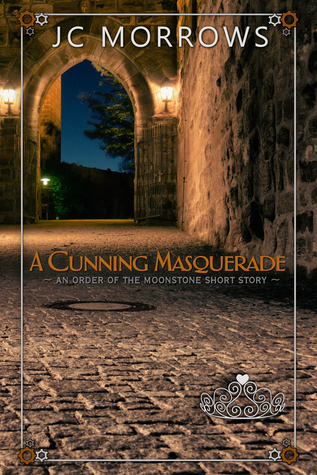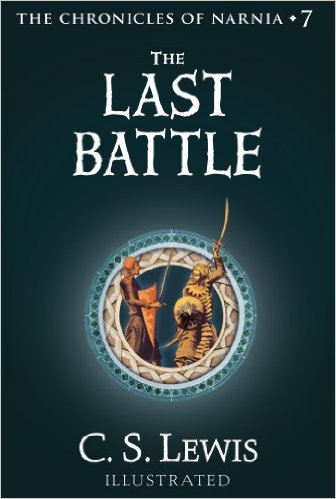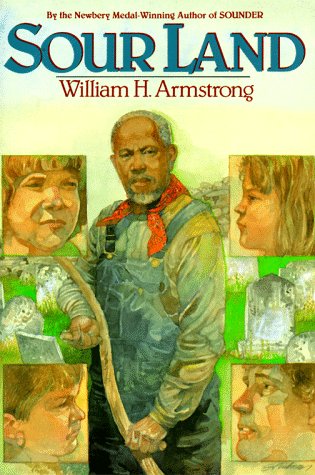[button color=”black” size=”big” link=”http://affiliates.abebooks.com/c/99844/77798/2029?u=http%3A%2F%2Fwww.abebooks.com%2Fservlet%2FSearchResults%3Fisbn%3D9781602581982″ target=”blank” ]Purchase here[/button]
One Fine Potion: The Literary Magic of Harry Potter
by Greg Garrett
Recommended Ages: 13+
In my duplex review of two religious interpretations of Harry Potter, I wrapped up with a list of additional books covering the criticism of Harry Potter from a religious or mythical point of view. One reason I didn’t include this book on that list was that, at the time, I wasn’t sure it had anything to do with religion; another is that I had it on my shelf. An Advance Reading Copy, in fact, dating back to before the book’s release in October 2010. I only remembered that it was stuck in some shadowy corner of my bookcase while I was looking up the other books on the list. And so, very belatedly, I decided to unstick it and give it a try. And now I wish it had been Greg Garrett that I had put over against Rik Potter in the grudge-match between Christian and Wiccan interpretations of the Harry Potter series.
Unlike the Anglican priest who wrote Harry Potter: A Christian Chronicle, Greg Garrett seems to be only a churchgoing Episcopalian layman. “Only” indeed! For he is also an award-winning novelist and a professor of English at Baylor University. He has been a nominee for a National Book Award and a Pulitzer Prize. He writes a theology blog for The Christian Century. And he wrote this book in part while doing graduate-level research in homiletics (i.e., how to preach) at the Episcopal Seminary of the Southwest and at Washington National Cathedral. He is also a lay preacher, a musician, a leader of writing workshops and retreats, and the father of two boys. Besides his novels Cycling and Free Bird, his novella Minuet and other short fictions, he has also written two memoirs, a book about the theology of grief, a paraphrase of the entire Bible titled The Voice, and book-length studies of the religious baggage in The Matrix, superhero comics, and Hollywood.
I lay out these impressive credentials first, rather than at the end of my review where I would usually put them, because they suggest Dr. Garrett may have a perspective on Harry Potter that is worth taking in. I, however, took it in without knowing most of this; and I was very impressed. Perhaps if I had known three years ago that this wasn’t just another appreciation of the literary qualities of Harry Potter by someone with just enough education to make it painful to read, I wouldn’t have waited three years to be impressed, and this review might have been of some service. With regret that I let that chance go by, all I can say now is: If every Christian friend of Harry Potter reading this review goes to Amazon and buys this book, not only will they find it worthwhile, but the bump in sales will be directly traceable to me! (*evil laughter*)
Yes, this book is at least partly a defense of Harry Potter against the flavor of Christianity that condemns the series because it contains magic and witchcraft, and thereby serves Satan. And yes, even some of its best points are covered by Sonia Falaschi-Ray in her straightforwardly organized but badly-written attempt to do the same. Seeing Harry described as a literary Christ-figure was no surprise. When Greg Garrett does this, the surprise is how compellingly he makes his case, and how completely his evidence fits. Even though this is ground that many writers have covered before—and Garrett often quotes them, as well as J. K. Rowling herself, as he goes over it—it breaks before one’s eyes like a fresh news story that has never been “scooped”: J. K. R. held back from revealing too much about her Christian convictions before she published Deathly Hallows, because she didn’t want to give away the ending of her story. A story that, Garrett argues, is basically about sacrificial love, death, and resurrection, and the hope of a better world to come.
Garrett says his book could have been much longer than it is. He condenses his material into a four-fold structure based on a medieval approach to reading the Bible. First the literal meaning concerns what the story means on its own terms. Then at the allegorical we consider the story’s deeper, philosophical significance. The tropological meaning touches on what it prompts us to do and how it inspires us to live. And the anagogical level tells how the story resonates beyond our present life, into the future. So in four interconnected but complete-in-themselves essays, Garrett makes a tightly-written, carefully argued case that Harry Potter, far from being a Satanic manual of forbidden magic, is a fantasy story shaped by the Christian faith. The magic simply provides the operating framework for the story to hang on; the story itself follows the pattern of the essential Gospel narrative of a prophesied savior offering himself as a sacrificial victim for love of the world.
The first essay, on the literal level of interpretation, examines how fantasy and magic have been used particularly by Christian authors, such as George MacDonald, C. S. Lewis, and J. R. R. Tolkien—a trio that Garrett mentions almost as often as Harry, Ron, and Hermione. He distances the magic world of Harry Potter from gnostic ideas of a superior, spiritual realm of secret knowledge. The magic world is just as flawed and troubled as the Muggle realm. In fact it has the same exact problems. The magical conceits of the Harry Potter series enable J. K. R. to sneak her message about the problems in our world (particularly related to the use and abuse of power) past the sleeping dragons of our argument-proof pieties and untested assumptions. To put it perhaps in different language, Rowling uses imaginary wonders to create a sense of distance between her message and the real-world problems it addresses. This rhetorical cushion makes her critique less painfully jarring, more likely to change minds that would not retreat one inch from a head-on attack.
Second, in his allegorical reading of Harry Potter, Garrett delves into the way Harry’s experiences in the wizarding world represent the power of community. It is only as he enters Hogwarts that Harry learns what it feels like to have a family—in spite of a previous decade of living with his only surviving relatives. The communities Harry joins—the Hogwarts student body, Gryffindor House, Dumbledore’s Army, the Order of the Phoenix, and ultimately the Weasley family—are his focus for learning and being formed as a right-living human being. In them, Harry finds love and belonging, and strives for justice and tolerance—things essential to community.
Third, on the tropological level, Garrett examines the nature of heroism and the conflict between good and evil. Harry learns early on that fame, or celebrity, is fickle and basically meaningless. But being a hero is quite different from being famous. Harry’s heroic instinct, what Hermione memorably calls his “saving-people thing,” does sometimes lead him into trouble. But as it develops under the mentoring and example of Dumbledore and others, it makes possible the only thing that can destroy Voldemort: Harry’s willingness to die for the world.
And finally, in the anagogical chapter, Garrett discusses the importance of happy endings in fairy tales and any literature influenced by Christian thought. The expectation that things will be better by and by, the sudden reversal from bad toward good (which Tolkien called “eucatastrophe”), is essential equipment not only for making a story satisfying, but for making life endurable. Everything in the Harry Potter series leads, and must lead, to the sentence J. K. Rowling chose to conclude it: “All was well.”
Of course there is much more to what Garrett says than this. He goes into some depth on the theme of repentance (or as Harry and Hermione put it, remorse). He discusses the fact that the world is not divided between good people and Death Eaters, that there is evil within even very good people. He touches on some Christ-figures besides Harry, and on Trinitarian imagery within the Harry Potter canon. He makes explicit Rowling’s implied criticism of the systemic evils of our time, such as prejudice and the use of torture “for the greater good.” And while his dependence on certain contemporary theologians may lead some Christians to spot weaknesses in his theology, Garrett concludes very persuasively that, although the Harry Potter books ultimately exist to tell their own story and not to convert anyone to Christianity, they are shaped by their author’s intent by the pattern of the Christian story. To J. K. Rowling this is, perhaps, only because she recognized that as a powerful story-shape. And other interpretations are certainly possible, including religious ones (such as Rik Potter’s Wiccan reading). But the author’s intention counts for something, and if nothing else, it should clear the Harryiad of the spurious charge of being a gateway to the occult.





